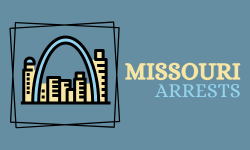Responsibilities of Arrestsing Officers
Arresting officers play a crucial role in upholding the law and ensuring public safety. Their primary responsibility is to apprehend individuals who have committed a crime or are suspected of illegal activities. This duty requires them to possess a deep understanding of legal procedures and protocols to carry out arrests effectively.
Additionally, arresting officers must exercise restraint and professionalism when dealing with potentially dangerous situations. It is essential for them to follow proper protocols to protect the rights of both the suspect and the community. Overall, the responsibilities of arresting officers are vital in maintaining law and order within society.
Essential Role of Arresting Officers
Arresting officers play a pivotal role in maintaining law and order within communities. Beyond simply apprehending suspects, they serve as the first line of defense in upholding justice and ensuring public safety. Their thoroughness and adherence to proper procedures are crucial in safeguarding the rights of both the accused and the society at large.
Upholding Law and Ensuring Safety
Arresting officers play a crucial role in upholding the law and ensuring the safety of the community. Their primary responsibility is to apprehend individuals who have violated the law and pose a threat to society. This involves conducting thorough investigations, gathering evidence, and making arrests in accordance with legal procedures. Police procedures dictate that arresting officers must have a clear understanding of the law and be able to apply it effectively in various situations.
Apprehending Individuals
One of the main duties of arresting officers is to apprehend individuals who have committed a crime. This involves identifying suspects, locating them, and taking them into custody. Police procedures require officers to use their training and experience to safely and effectively apprehend individuals without causing harm to themselves or others.
Legal Procedures
Arresting officers must have a solid understanding of legal procedures to ensure that arrests are made in accordance with the law. This includes knowing when and how to obtain search warrants, make arrests, and gather evidence. By following established police procedures, officers can ensure that their actions are legally sound and will hold up in court.
Exercising Restraint and Professionalism
Arresting officers are often faced with dangerous and high-stress situations that require them to exercise restraint and professionalism. It is crucial for officers to remain calm and composed when dealing with individuals who may be violent or resistant. By following law enforcement duties, officers can protect themselves, suspects, and the community from harm.
Dealing with Dangerous Situations
Arresting officers must be prepared to deal with dangerous situations, such as armed suspects or violent criminals. It is essential for officers to use their training and experience to assess the risks and respond appropriately. By following police procedures and exercising caution, officers can safely resolve dangerous situations and protect themselves and others.
Protecting Rights of Suspect and Community
It is the responsibility of arresting officers to protect the rights of both suspects and the community. This includes ensuring that suspects are treated fairly and respectfully during the arrest process. By upholding the law and following established procedures, officers can safeguard the rights of all individuals involved in a case.
Maintaining Law and Order in Society
Arresting officers play a vital role in maintaining law and order in society. By apprehending individuals who have broken the law, officers help to deter crime and protect the safety of the community. Through their dedication to upholding the law and serving the public, arresting officers contribute to a safer and more secure society for all.
Frequently Asked Questions
Our Frequently Asked Questions section aims to provide you with detailed information on the Responsibilities of Arresting Officers. Below, you will find a comprehensive list of commonly searched queries on Google related to this topic, each followed by a detailed explanation to enhance your understanding.
What are the main responsibilities of arresting officers?
Arresting officers are tasked with maintaining public safety, enforcing laws, and protecting citizens from harm. They have the authority to apprehend individuals suspected of committing crimes, conduct investigations, gather evidence, and ensure that the legal rights of suspects are upheld throughout the arrest process.
Can arresting officers use force during an arrest?
Arresting officers are allowed to use reasonable force when necessary to detain a suspect, protect themselves or others from harm, or prevent a suspect from escaping custody. However, they must adhere to strict guidelines and only use force that is proportionate to the situation at hand.
What is the procedure for arresting a suspect?
When arresting a suspect, officers must identify themselves, inform the individual of the reason for the arrest, and read them their Miranda rights. They must then physically restrain the suspect, inform them of the charges against them, and transport them to a designated holding facility for processing.
How do arresting officers handle evidence during an arrest?
Arresting officers are responsible for preserving and documenting all evidence related to the arrest, including physical objects, witness statements, and any other relevant information. They must ensure that the chain of custody is maintained to prevent tampering or contamination of evidence.
What are the legal rights of suspects during an arrest?
Suspects have the right to remain silent, the right to legal representation, and the right to be treated with dignity and respect during an arrest. They also have the right to know the charges against them, the right to a fair and speedy trial, and the right to due process under the law.
How can citizens file complaints against arresting officers?
If citizens believe that arresting officers have acted improperly or violated their rights during an arrest, they can file a complaint with the relevant law enforcement agency, the local government, or a civilian oversight board. It is important to provide detailed information and evidence to support the complaint for a thorough investigation to be conducted.







